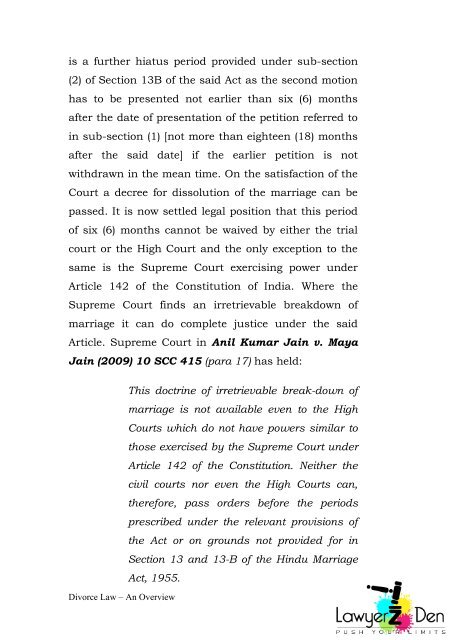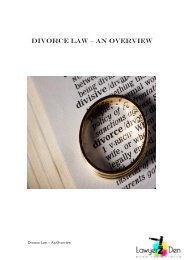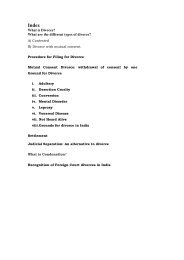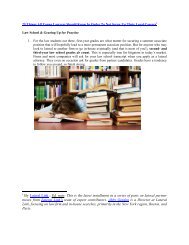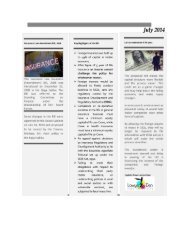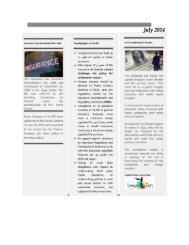DIVORCE LAW
You also want an ePaper? Increase the reach of your titles
YUMPU automatically turns print PDFs into web optimized ePapers that Google loves.
is a further hiatus period provided under sub-section<br />
(2) of Section 13B of the said Act as the second motion<br />
has to be presented not earlier than six (6) months<br />
after the date of presentation of the petition referred to<br />
in sub-section (1) [not more than eighteen (18) months<br />
after the said date] if the earlier petition is not<br />
withdrawn in the mean time. On the satisfaction of the<br />
Court a decree for dissolution of the marriage can be<br />
passed. It is now settled legal position that this period<br />
of six (6) months cannot be waived by either the trial<br />
court or the High Court and the only exception to the<br />
same is the Supreme Court exercising power under<br />
Article 142 of the Constitution of India. Where the<br />
Supreme Court finds an irretrievable breakdown of<br />
marriage it can do complete justice under the said<br />
Article. Supreme Court in Anil Kumar Jain v. Maya<br />
Jain (2009) 10 SCC 415 (para 17) has held:<br />
This doctrine of irretrievable break-down of<br />
marriage is not available even to the High<br />
Courts which do not have powers similar to<br />
those exercised by the Supreme Court under<br />
Article 142 of the Constitution. Neither the<br />
civil courts nor even the High Courts can,<br />
therefore, pass orders before the periods<br />
prescribed under the relevant provisions of<br />
the Act or on grounds not provided for in<br />
Section 13 and 13-B of the Hindu Marriage<br />
Act, 1955.<br />
Divorce Law – An Overview


